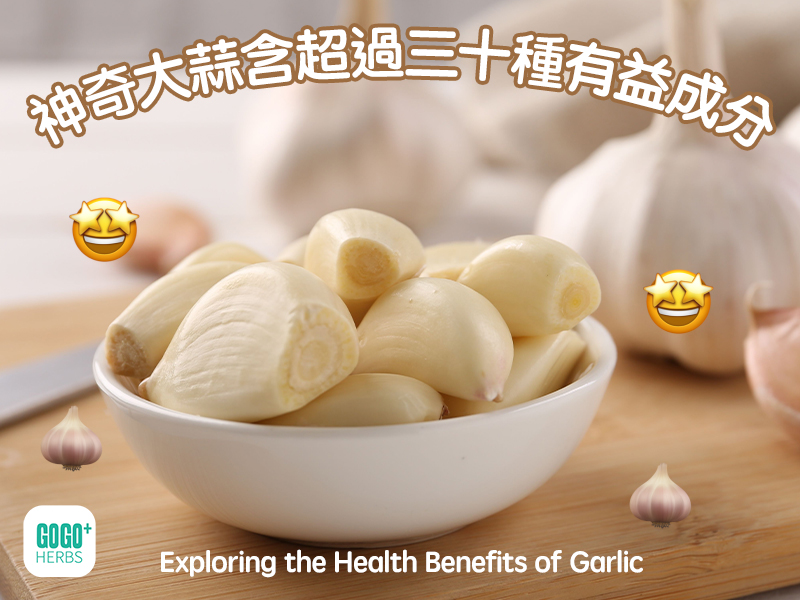Garlic is a staple seasoning in almost every household kitchen, its unique pungent aroma and spicy taste adding flavor to many dishes. However, discussions about garlic are always accompanied by various health claims, such as its antibacterial, anti-cancer, and cold-prevention properties. So, what are the actual health benefits of regularly consuming garlic? Are these widely circulated miraculous effects true? It's advisable to approach garlic with a rational attitude and avoid excessive reliance on its supposed benefits.
Before discussing the "benefits" of garlic, let's first understand its nutritional content. Although garlic has a rather unique taste and texture, it does indeed contain a variety of nutrients...Beneficial to the human bodyGarlic contains a certain amount of amino acids, esters, vitamins, and various minerals. More notably, garlic contains more than 30 kinds of sulfur compounds, accounting for about 0.4% of the total weight of garlic. The various active effects of garlic come from these sulfur-containing compounds, such as allicin (also known as alliin).
First, let's look at the claim that "eating garlic can kill bacteria." Garlic has always been known for its...natural antibioticsGarlic is known as a "highly effective food" because, in animal experiments, scientists have discovered that components in garlic have inhibitory or bactericidal effects on some bacteria. The principle behind this is that allicin can...Inhibit bacteriaThe activity of thiol proteases in the body. However, it must be clear that the amount of garlic we consume at one time is quite limited, resulting in an even smaller intake of allicin. It is unrealistic to expect to achieve a significant antibacterial effect by eating garlic, as this differs significantly from the dosage and conditions used in animal experiments.
The rumor that "eating garlic can fight cancer" mainly stems from some past observational studies. Some scientists have found in experiments that eating garlic may help reduce the risk of stomach and colorectal cancer. However, it's important to clarify that these studies have not provided direct evidence of a causal relationship between garlic and cancer prevention. Furthermore, there are significant differences in the physiological structures and metabolic mechanisms of animals and humans—the effective component doses administered to animals in experiments were extremely high, a dose that cannot be achieved through daily garlic consumption. Moreover, garlic is a pungent food; excessive consumption may cause more harm than good to the body than its supposed "anti-cancer effects."
In fact, whether it's antibacterial or anti-cancer, these touted "effects" are almost always only apparent when large amounts of garlic are consumed, a level rarely met in our daily diet. Furthermore, garlic is a food that can easily lead to social awkwardness: after consumption, some sulfur compounds in the body are converted into methyl allyl sulfide, a substance that emits a distinctive sour odor through the skin and breath, often causing discomfort.
Of course, garlic, as a common ingredient, is not without value. First, it contains beneficial nutrients such as sulfides, and moderate consumption can replenish these substances in the body. Second, garlic's unique aroma can stimulate the taste buds, helping to enhance appetite and making people more eager to eat. Finally, in the hot summer, moderate consumption of garlic can also play a role in repelling mosquitoes and insects, bringing some convenience to life.
However, not everyone is suitable for eating garlic. The following groups should pay special attention: First, people allergic to garlic components may experience allergic reactions such as skin redness and swelling, and difficulty breathing after consumption; second, people with eye diseases (such as glaucoma, conjunctivitis, etc.) may experience worsened eye discomfort due to the irritant properties of garlic; third, people with weak gastrointestinal function or damaged gastric mucosa (such as those with gastritis or gastric ulcers) may experience increased pain or discomfort due to the pungent components of garlic; fourth, people taking certain medications such as dabigatran may experience interactions with garlic, affecting the efficacy of the medication or increasing the risk of side effects.
In addition, because garlic has a certain degree of irritation, it should not be consumed in large quantities at one time. To allow the nutrients in garlic to be utilized more effectively, it is recommended to slice or crush the garlic and let it sit in the air for a while before cooking or eating it—this allows the allicin to be fully released and thus better utilized by the body.
In conclusion, when it comes to garlic, don't easily believe those exaggerated claims of "miraculous effects." It is essentially still a seasoning ingredient; moderate consumption can enhance the flavor of food and provide the body with a small amount of nutrition. However, it's crucial to avoid excessive consumption. Enjoying its flavor in moderation is the best way to avoid placing unnecessary burden on your body.


